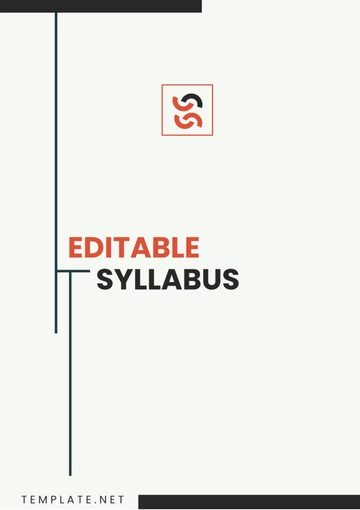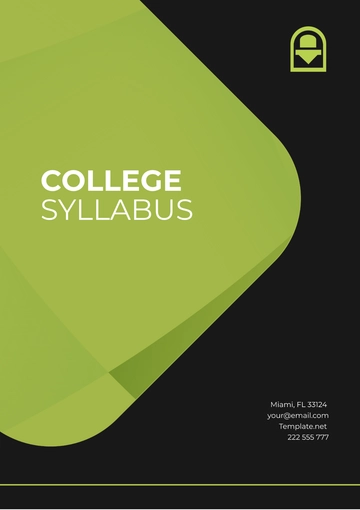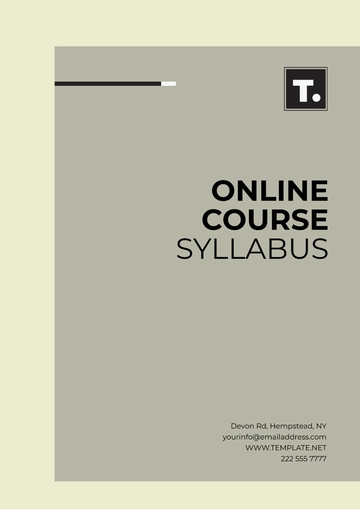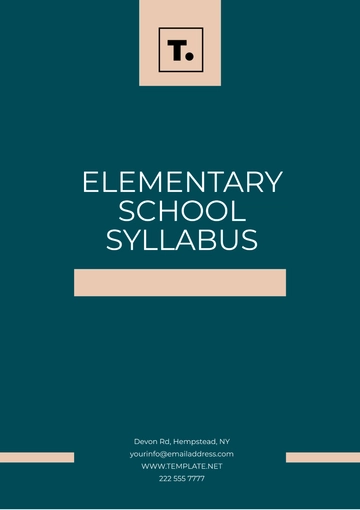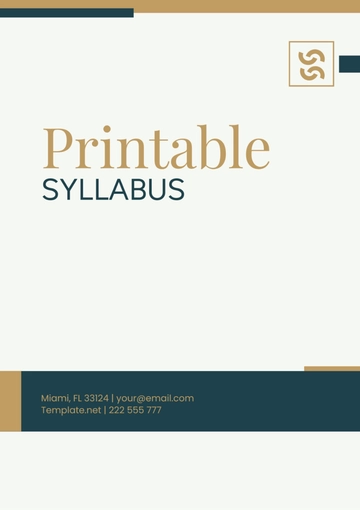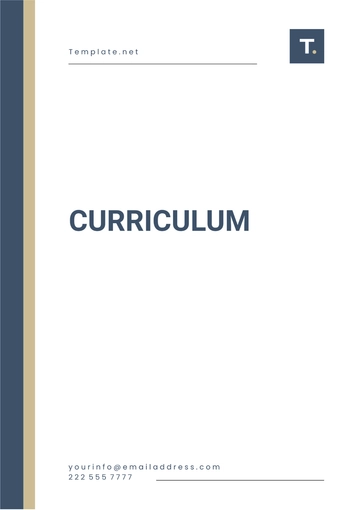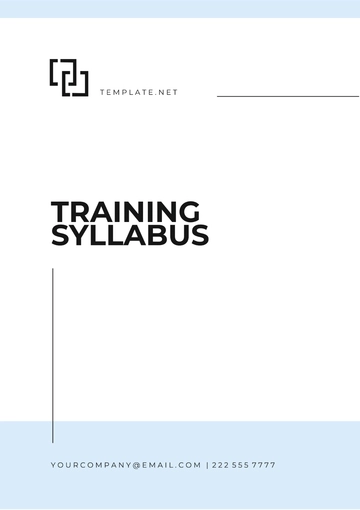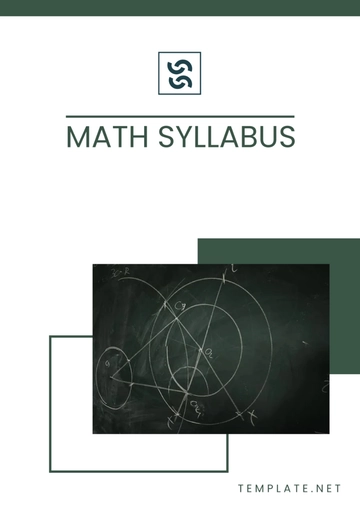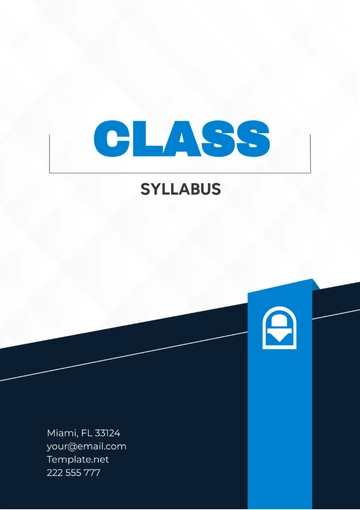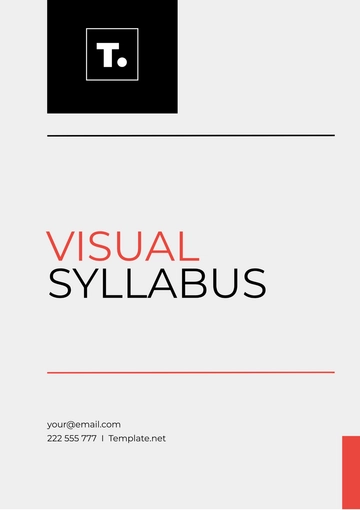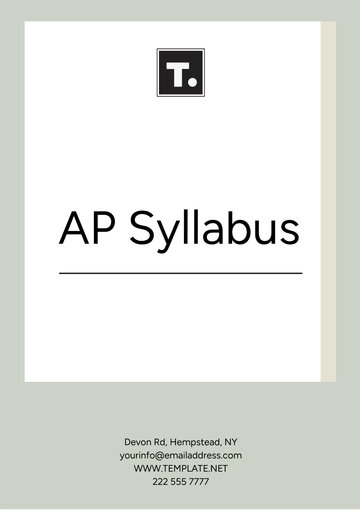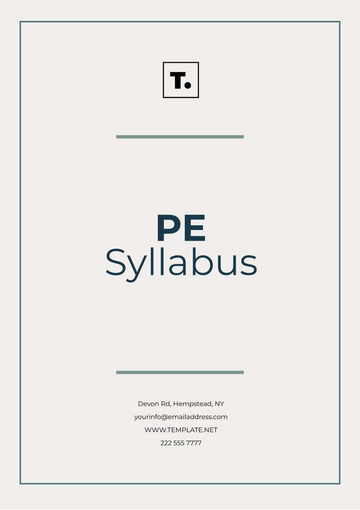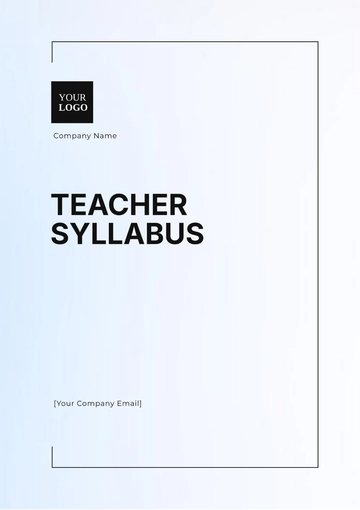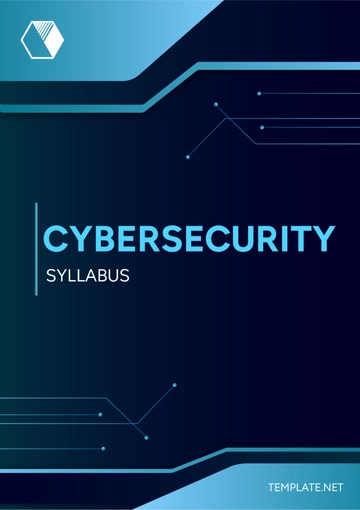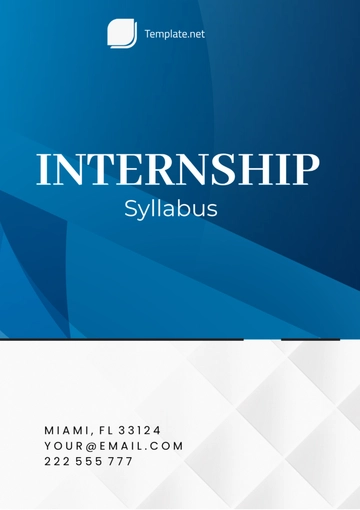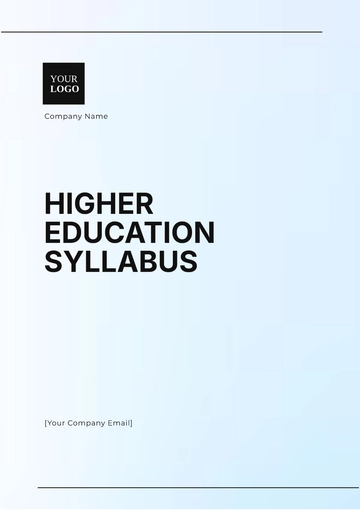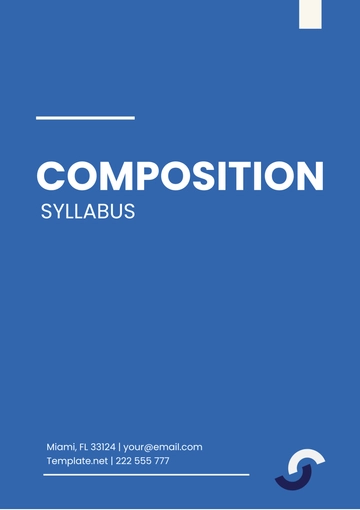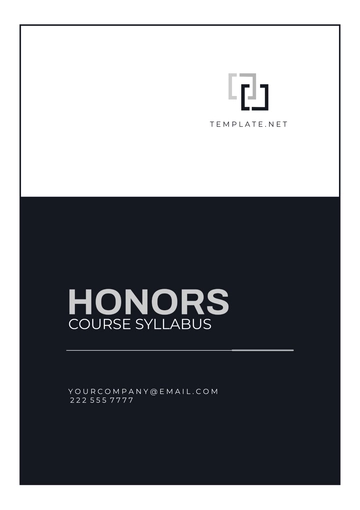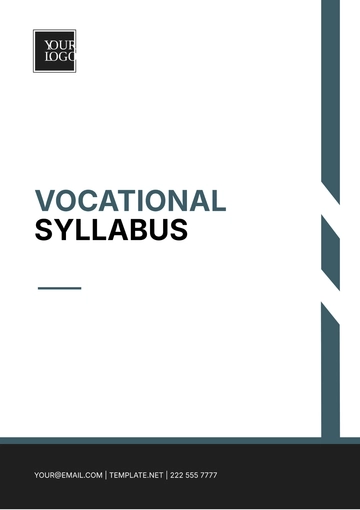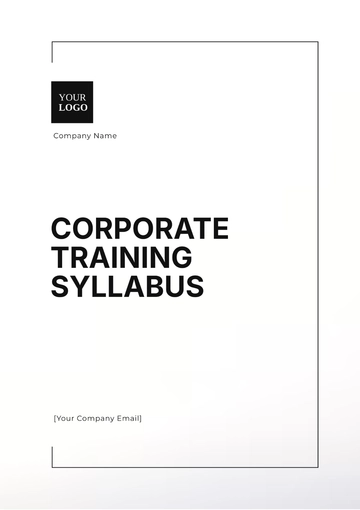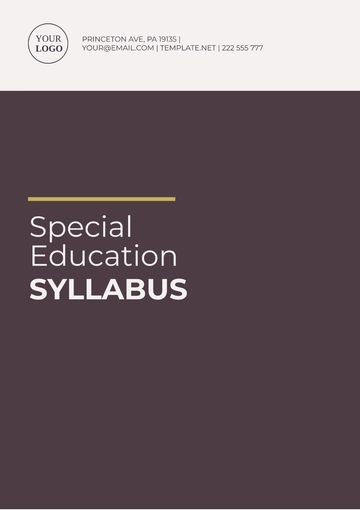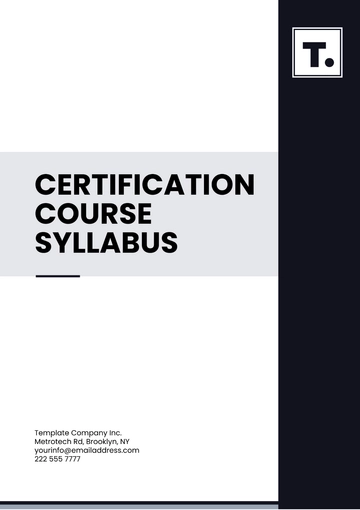Free Flight Training Syllabus
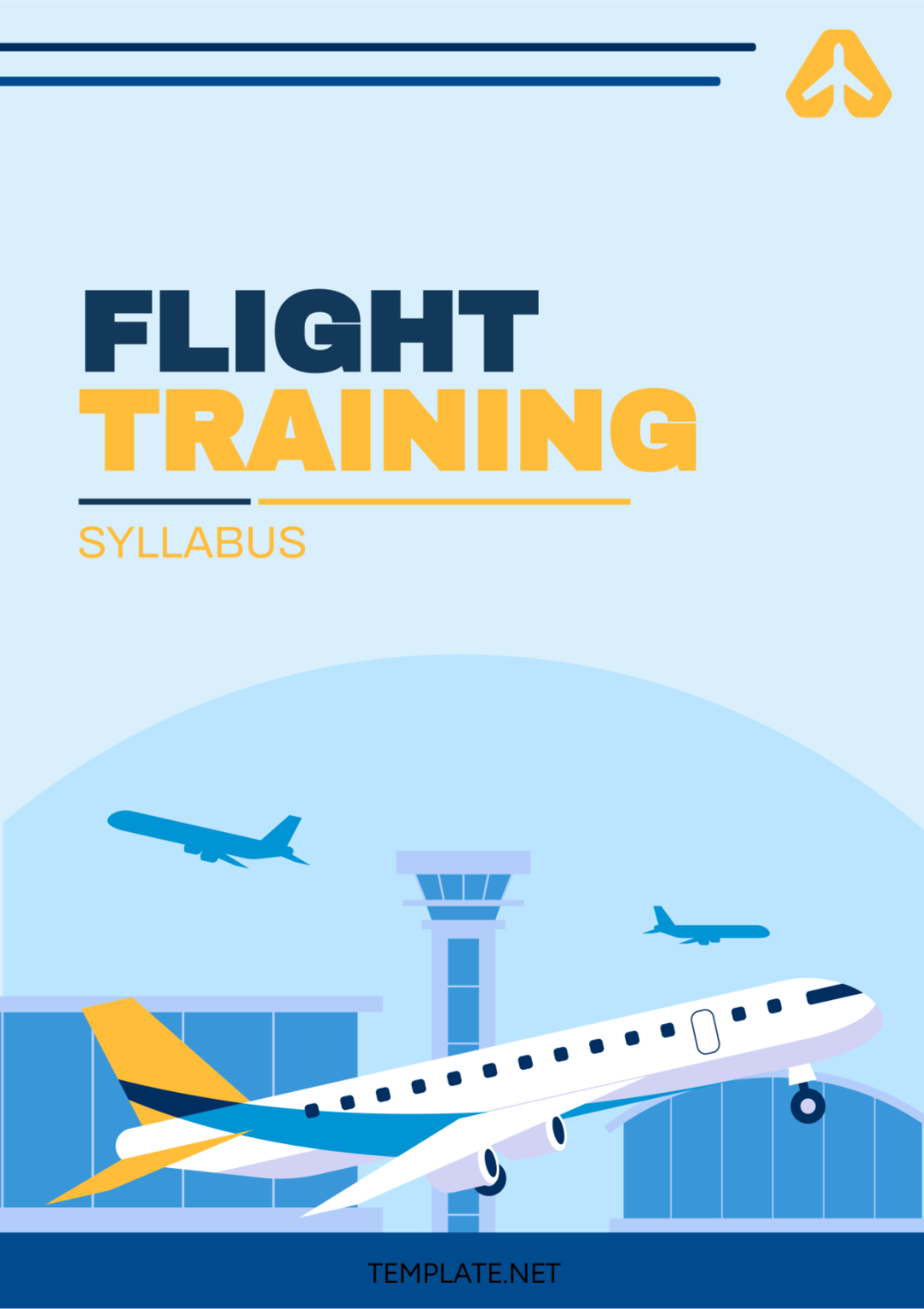
Flight Training Course
Course Title | [COURSE TITLE] |
Course Code | [COURSE CODE] |
Instructor Name | [YOUR NAME] |
[YOUR EMAIL] | |
Institution | [YOUR COMPANY NAME] |
Institution Hours | [INSTITUTION HOURS] |
Class Location | [CLASS LOCATION] |
Class Time | [CLASS TIME] |
Class Duration | [DATE] - [DATE] |
1. Course Description
The Flight Training program offered by [YOUR COMPANY NAME] is meticulously designed to prepare learners for a successful career in aviation. Under the expert guidance of [YOUR NAME], this program focuses on developing essential flight skills and knowledge necessary for safe and proficient piloting. The course is structured into comprehensive modules, providing aspiring pilots and flight instructors with a roadmap for effective flight training.
2. Learning Objectives
Learn basic flight maneuvers like takeoff, landing, and navigation.
Understand aircraft systems, aerodynamics, and aviation regulations.
Improve communication and interaction skills with ATC.
Skilled in flight planning, navigation and weather interpretation.
Cultivate decision-making skills for safe and effective flight operations
3. Course Schedule
Week | Topic |
|---|---|
1 | Introduction to Aviation and Aircraft Familiarization |
2 | Basic Flight Maneuvers: Straight and Level, Climbs, and Descents |
3 | Navigation Fundamentals and Flight Planning |
4 | Communication and ATC Procedures |
5 | Advanced Maneuvers: Turns, Stalls, and Emergencies |
6 | Instrument Flying and Weather Interpretation |
7 | Cross-Country Navigation and Flight Operations |
8 | Review and Final Assessment |
4. Required Reading and Materials
"The Pilot's Handbook of Aeronautical Knowledge" by FAA
"Flight Training Manual" by Transport Canada
Charts, Navigation Log, Flight Computer
Headset with Microphone
Pilot Operating Handbook for Aircraft Being Utilized
5. Assignments and Assessments
Complete pre-flight and post-flight checklists for each training session.
Demonstrate proficiency in flight maneuvers through practical flight evaluations.
Submit flight plans and navigation logs for cross-country flights.
Participate in simulated ATC communications and emergency scenarios.
Pass written knowledge tests on aviation regulations and procedures.
6. Course Policies
Attendance to all scheduled flight training sessions is mandatory.
Students are expected to come prepared for each session with required reading and materials.
Safety protocols must be followed at all times during flight operations.
Respectful and professional behavior is required during interactions with instructors and peers.
Any concerns or issues should be communicated promptly to the instructor for resolution.
7. Grading Policy
Assessment criteria include performance during flight maneuvers, knowledge tests, and adherence to safety protocols.
Grades will be based on a combination of practical evaluations, written exams, and overall participation.
Final grades will reflect the student's proficiency in all aspects of flight training.
8. Additional Resources
Flight simulator software for additional practice.
Online forums and discussion groups for aviation enthusiasts.
Guest lectures and seminars from experienced pilots and aviation professionals.
9. Navigation and Flight Planning
Understanding aeronautical charts, navigation aids, and GPS systems.
Flight planning techniques, including fuel calculations, airspace considerations, and alternate airports.
Interpretation of weather information and its impact on flight planning and decision-making.
10. Communication and ATC Procedures
Effective communication techniques for radio transmissions with ATC.
Understanding ATC clearances, instructions, and standard phraseology.
Handling radio communications during various phases of flight, including departure, en-route, and arrival.
Disclaimer
The instructor holds the right to make modifications to the syllabus and course materials at any time as required. Additionally, regulatory amendments could also necessitate changes to the course content. In such instances, it should be understood that [YOUR COMPANY NAME] will have no liability or responsibility for any consequences or repercussions that may occur as a result of implementing the information derived from this syllabus.
- 100% Customizable, free editor
- Access 1 Million+ Templates, photo’s & graphics
- Download or share as a template
- Click and replace photos, graphics, text, backgrounds
- Resize, crop, AI write & more
- Access advanced editor
Elevate your aviation journey with Template.net's Flight Training Syllabus Template. Crafted for efficiency and precision, it's fully editable and customizable to suit your unique learning needs. Seamlessly modify and tailor your training regimen with ease using our intuitive Ai Editor Tool. Unlock your potential and soar to new heights today!

